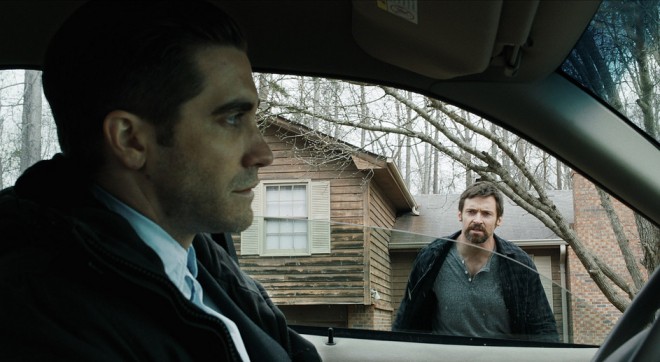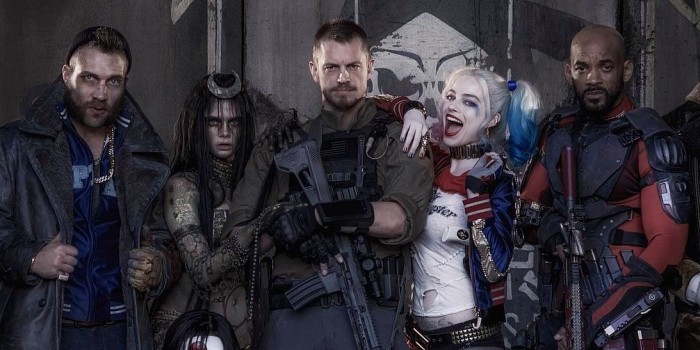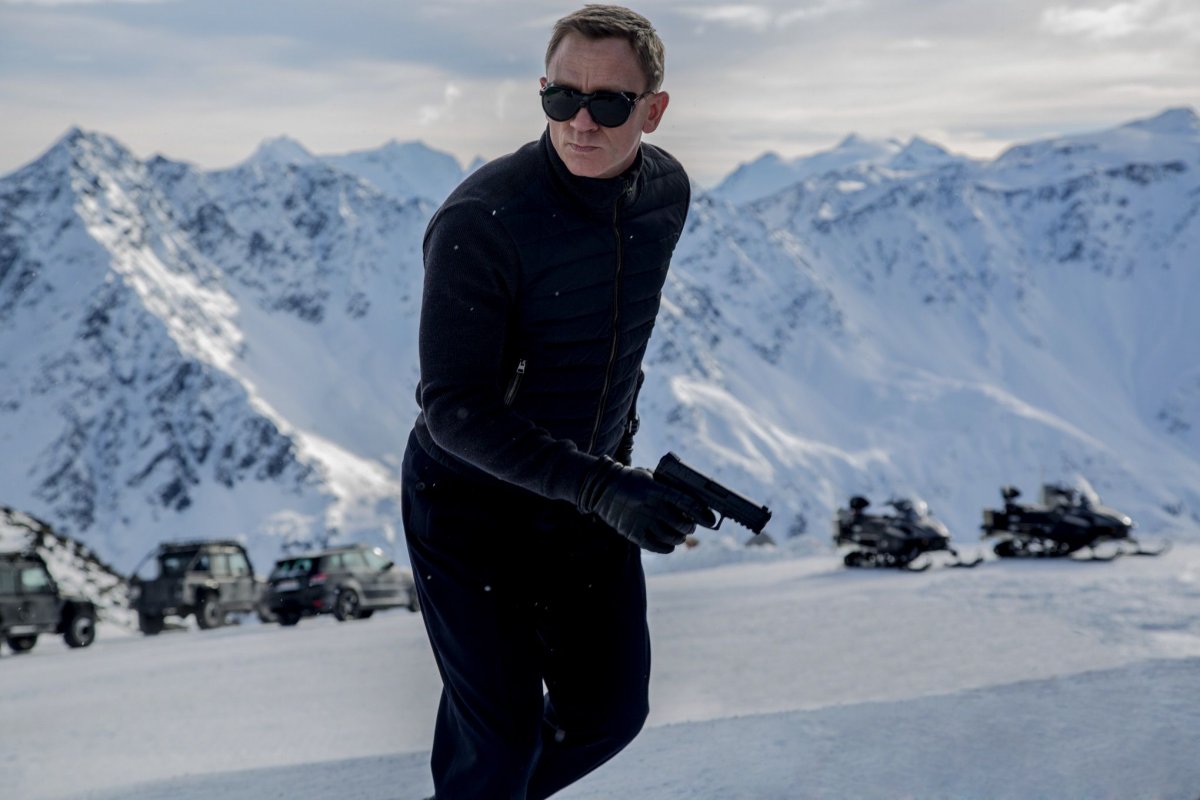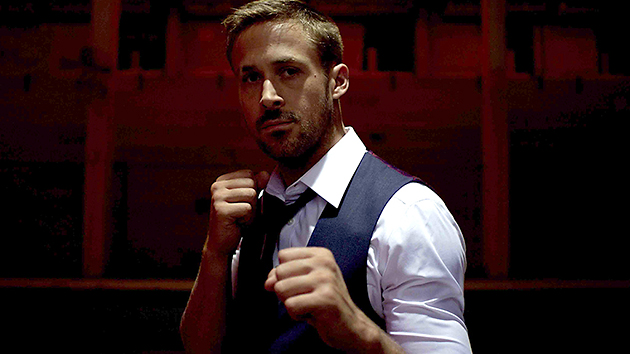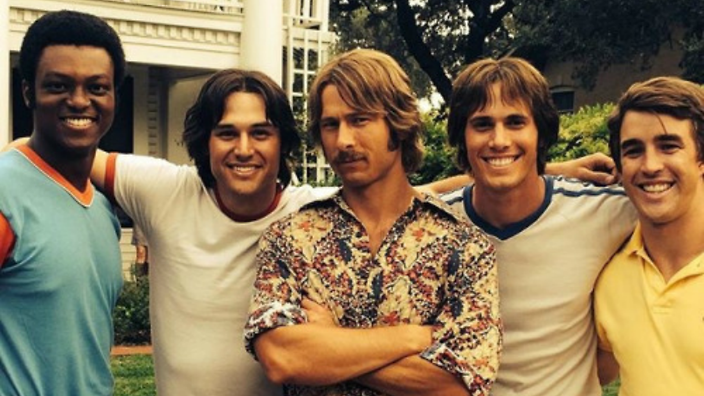![]()
 s Andrew Sarris once said of Sam Peckinpah, Denis Villeneuve, director of Prisoners (opening today nationwide) is not “an artist with a compulsion to tell stories but rather an artist for whom stories [are] merely a pretext for the creation of images.” Sometimes at the expense of other equally important considerations. In a way, Prisoners made me think of David Lynch’s Dune (1984). The plot of Dune was so outrageously complex and top heavy that at some point Lynch, a talented painter, clearly said screw the story, I’m just gonna concentrate on images. The Dune he created, while a disappointment to many SF fans, is a mindboggling masterpiece of atmosphere and tone. It literally doesn’t matter what’s actually driving the story; it should be watched like a painting that happens to take a couple hours (and change) to view.
s Andrew Sarris once said of Sam Peckinpah, Denis Villeneuve, director of Prisoners (opening today nationwide) is not “an artist with a compulsion to tell stories but rather an artist for whom stories [are] merely a pretext for the creation of images.” Sometimes at the expense of other equally important considerations. In a way, Prisoners made me think of David Lynch’s Dune (1984). The plot of Dune was so outrageously complex and top heavy that at some point Lynch, a talented painter, clearly said screw the story, I’m just gonna concentrate on images. The Dune he created, while a disappointment to many SF fans, is a mindboggling masterpiece of atmosphere and tone. It literally doesn’t matter what’s actually driving the story; it should be watched like a painting that happens to take a couple hours (and change) to view.
When a director regards a story as little more than hooks to hang pictures on, the movie (absent the genius of a David Lynch) tends to suffer for it. Incendies, Villneuve’s previous feature (best foreign film Oscar nod), was more balanced: the story didn’t serve the images, image and story supported each other with incredibly powerful results. And while the two films have many surprising parallels—a search for a lost child, a heavy emphasis on torture as a plot device, an outrageously improbable final twist—Incendies and Prisoners are two very different movies. The former works, the latter decidedly does not.
Devices that serve to deepen and darken character and story in Incendies come off as ponderous, even pretentious—a word I try to avoid—in Prisoners. It feels like Lee Daniels (Precious, Based on the Novel Madea Goes to Hell) trying to make a David Fincher (Se7en, Zodiac) movie. (Lee Daniels, with possibly the greatest gap between talent and success of any director in history—he’d be relegated to direct-to-disc Z-movies except for Oprah’s penchant  for grand-guignol sentimentality—has a decent, if indulgent, visual sense, but a total inability to recognize, let alone recount, a good story.) Prisoners has Daniels-style non sequitur head scratchers with a studied overlay of Fincher’s trademark darkness and doom. The slow zooms that, in Incendies, alert us to impending danger, seem almost parodistic in Prisoners: there’s a big difference between a slow zoom into a shadowed doorway amid rubble and gunfire, and a slow zoom into a wet tree trunk in the front yard of a suburban mansion. (Villeneuve has a fascination with tree trunks: from the opening scene forward, it’s his favorite pillow shot.)
for grand-guignol sentimentality—has a decent, if indulgent, visual sense, but a total inability to recognize, let alone recount, a good story.) Prisoners has Daniels-style non sequitur head scratchers with a studied overlay of Fincher’s trademark darkness and doom. The slow zooms that, in Incendies, alert us to impending danger, seem almost parodistic in Prisoners: there’s a big difference between a slow zoom into a shadowed doorway amid rubble and gunfire, and a slow zoom into a wet tree trunk in the front yard of a suburban mansion. (Villeneuve has a fascination with tree trunks: from the opening scene forward, it’s his favorite pillow shot.)
 In Prisoners, two families, one white one black (guess who the focus is on?), come up a couple daughters short on Thanksgiving day when the girls, Annie and Joy, fail to return from an errand between the two neighboring houses. Huge “Hugh” Jackman, as Annie’s father Keller Dover (many of the names are topheavy with manufactured significance: Loki, Grace, Holly, Joy), will not be dissuaded from his utter certainty that the girls were abducted by a creep in an RV (Paul Dano, worthy successor to Michael J. Pollard and Clint Howard as go-to creep dujour). This despite the entreaties of Det. Loki (Jake Gyllenhaal, whose odd habit of blinking his eyes with his entire face is getting more and more distracting) to let the police do their job. When the creep, one mentally awry Alex Jones, is released to the custody of his Aunt Holly (Oscar winner Melissa Leo, in a suspiciously thankless role) because there is absolutely no evidence to link him to the alleged crime beyond the wrong-place-wrong-time trope (his rundown RV was parked in a wealthy neighborhood) common to child abduction plotlines, Dover abducts him and boxes him up in a makeshift prison on the third floor of a boarded up apartment building left to him by his father. Dover is convinced he can Abu Ghraib the girls’ location out of Jones, and his subsequent descent into that moral hellhole provides the unsubtle irony of the title.
In Prisoners, two families, one white one black (guess who the focus is on?), come up a couple daughters short on Thanksgiving day when the girls, Annie and Joy, fail to return from an errand between the two neighboring houses. Huge “Hugh” Jackman, as Annie’s father Keller Dover (many of the names are topheavy with manufactured significance: Loki, Grace, Holly, Joy), will not be dissuaded from his utter certainty that the girls were abducted by a creep in an RV (Paul Dano, worthy successor to Michael J. Pollard and Clint Howard as go-to creep dujour). This despite the entreaties of Det. Loki (Jake Gyllenhaal, whose odd habit of blinking his eyes with his entire face is getting more and more distracting) to let the police do their job. When the creep, one mentally awry Alex Jones, is released to the custody of his Aunt Holly (Oscar winner Melissa Leo, in a suspiciously thankless role) because there is absolutely no evidence to link him to the alleged crime beyond the wrong-place-wrong-time trope (his rundown RV was parked in a wealthy neighborhood) common to child abduction plotlines, Dover abducts him and boxes him up in a makeshift prison on the third floor of a boarded up apartment building left to him by his father. Dover is convinced he can Abu Ghraib the girls’ location out of Jones, and his subsequent descent into that moral hellhole provides the unsubtle irony of the title.
 Like the recent spate of amoral sociopath porn that’s swept TV of late (24, Dexter, Breaking Bad), Prisoners gives the audience permission to cheer-on the anti-hero by having Jones whisper in Dover’s ear, in the absence of witnesses, something that may or may not affirm his guilt. Thus the audience’s thumbs down relates less to Roger Ebert’s trademark than to the “kill him!” gesture of Ancient Roman mobs.
Like the recent spate of amoral sociopath porn that’s swept TV of late (24, Dexter, Breaking Bad), Prisoners gives the audience permission to cheer-on the anti-hero by having Jones whisper in Dover’s ear, in the absence of witnesses, something that may or may not affirm his guilt. Thus the audience’s thumbs down relates less to Roger Ebert’s trademark than to the “kill him!” gesture of Ancient Roman mobs.
Prisoners is essentially a mystery, one element Villaneuve manages to get mostly right, so I won’t say much more; many of the developments are unexpected and satisfying. Until the script leaps out of Daniels eyerolling territory into full blown Shyamalan WTF “I see dumb people” world. At the twist, the audience I was with laughed out loud at what was surely intended to be a shocking—DUN! Dun! dunnnnnnn!—moment. Granted, I didn’t see it coming, but I think that was because I had underestimated Villaneuve’s ability to transform himself so thoroughly from a powerful independent artist with a promising future to a crushingly disappointing Hollywood genre hack.
![]()
To the extent that Prisoners is watchable—and it surely is that—it’s due to the performances. Terrence Howard and Viola Davis, as the parents of the missing girl Joy, are as reliable as always; both have shown a consistent gift for making a wide variety of characters seem solidly human. Their work here is no exception. Maria Bello, who was such a strong presence in A History of Violence, has a lighter load here: mostly she sleeps, waking only to have confused phone calls and take more sleeping pills. But her pain convinces, and her withdrawal from the story seems to parallel the character’s withdrawal from life in the aftermath of her daughter’s abduction. Jackman’s character is not real deep, mostly he’s pissed off at everybody and flailing around in anger, making a mess of just about everything in his rage. But the throughline of the film is carried by Jake Gyllenhaal, whose Det. Loki isn’t even a member of the families involved, but whose personal commitment to the case takes a toll on his psyche. Gyllenhaal was cast, I suspect, for the Fincherian cred—he’s pretty much the same guy here as he was in Zodiac—but it works. When I think back on Prisoners, most of the scenes that come to mind, that have stuck with me, involve Gyllenhaal.
![]()
Prisoners
Opens today nationwide
2 hours 31 minutes
Rated R
Director Denis Villeneuve
Screenwriter Aaron Guzikowski
Warner Brothers Pictures
Hugh Jackman
Jake Gyllenhaal
Terrence Howard
Viola Davis
Maria Bello
Melissa Leo
Paul Dano

